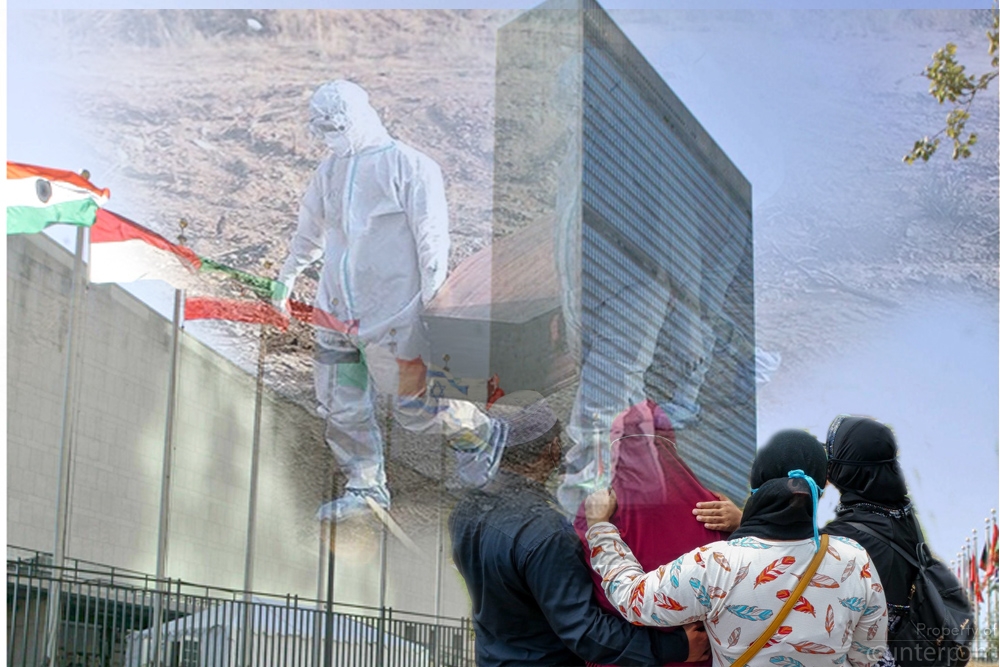Even as the controversy over the burial of COVID-19 dead is heating up with the people of Iranaitivu island protesting against the decision to bury the dead in their midst, the Sri Lankan government is asking the UN Human Rights Council (UNHRC) to delete any reference to the issue of burial from the draft resolution on Sri Lanka.
The Core Group’s draft resolution which is now being debated in the Council had condemned the forced cremation of coronavirus deceased. According to Muslim leaders hundreds of Muslim COVID-19 had been cremated against the wishes of their families as Islam prohibits cremation and makes burial mandatory.
Sri Lanka’s Permanent Representative to the UN in Geneva C.A. Chandraprema insisted that the co-sponsors remove the reference to mandatory cremations, because it was “obsolete” after Government had reversed its policy.
Indeed the government had reversed its order but the bodies could be buried only in one special graveyard located in Iranaitivu Island in the far north of Sri Lanka in the Gulf of Mannar. The government spokesman said that the State would bear the expense of transporting the bodies and would allow three family members to witness the burial and say the prayers.
But the Muslims have roundly condemned this impractical way disposing off the bodies. They point out that having accepted the scientific argument that burial of the COVID-19 dead would not contaminate groundwater, why should Muslims be forced to bury them in a place very far away on an island. Why cannot they be allowed to bury in Muslim graveyards in various towns and villages in Sri Lanka? The journey requires land and sea transport too.
The decision to bury the bodies in Iranaitivu has created a new rift – between the government and the Catholics and added a new dimension to the conflict with the Tamil minority. The island is inhabited by Tamil Catholics and the Catholic clergy has plunged headlong into the protest, giving leadership. The inhabitants of the island have cordoned off the graveyard created by the navy and filled up the graves that had been dug.
Meanwhile, in South Sri Lanka, the Catholic church is up in arms against the government for failing to explain as to who or which group has masterminded the April 21, 2019 Easter Sunday multiple suicide bombings in three churches and three hotels in three towns including Colombo. Most of the victims were Catholics. The Commission of Inquiry had only spoken about negligence and sought criminal proceedings against a former President and a few others. But the commission is silent on the conspiracy and those involved in it.
The government’s decision to submit to MPs and the clergy only a part of the commissions and the formation of a committee of ministers to st study gives the impression that the government has something to hide, the Catholics suspect.
The Archbishop of Colombo Cardinal Malcolm Ranjith has threatened to take the issue to the international community and has asked Catholics to come for the mass on Sunday in black to register their protest.



 Logging you in...
Logging you in... Loading IntenseDebate Comments...
Loading IntenseDebate Comments...

